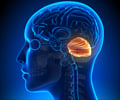Researchers have found that people who are suffering from neurodegenerative diseases such as Huntington’s disease have an ability to learn faster.
Researchers at Ruhr-Universität Bochum and from Dortmund have found that people who are suffering from neurodegenerative diseases such as Huntington’s disease have an ability to learn faster and the speed of their learning was directly linked to how pronounced their genetic mutation was, according to a new study published in the journal Current Biology.
The team has thus demonstrated for the first time that neurodegenerative diseases can go hand in hand with increased learning efficiency. "It is possible that the same mechanisms that lead to the degenerative changes in the central nervous system also cause the considerably better learning efficiency" says Dr. Christian Beste, head of the Emmy Noether Junior Research Group "Neuronal Mechanisms of Action Control" at the RUB.
Passive learning through repeated stimulus presentation
In a previous study, the Bochum psychologists reported that the human sense of vision can be changed in the long term by repeatedly exposing subjects to certain visual stimuli for short periods (we reported in May 2011, http://aktuell.ruhr-uni-bochum.de/pm2011/pm00136.html.de). The task of the participants was to detect changes in the brightness of stimuli. They performed better if they had viewed the stimuli passively for a while first. In the current study, the researchers presented the same task to 29 subjects with the genetic mutation for Huntington's disease, who, however, did not yet show any symptoms. They also tested 45 control subjects without such mutations in the genome. In both groups, the learning efficiency was better after passive stimulus presentation than without the passive training. Subjects with the Huntington's mutation, however, increased their performance twice as fast as those without the mutation.
Glutamate may have paradoxical effect
Degenerative diseases of the nervous system are based on complex changes. A key mechanism is an increased release of the neurotransmitter glutamate. However, since glutamate is also important for learning, in some cases it could lead to the paradoxical effect: better learning efficiency despite degeneration of the nerve cells.
Detecting differences in brightness under aggravated conditions
Advertisement
In each experimental run, the subjects saw two consecutive small bars on a computer screen that either had the same or different brightness. Sometimes, however, not only the brightness changed from bar one to bar two, but also the orientation of the bar (vertical or horizontal). "Normally, the distraction stimulus, i.e. the change in orientation, draws all the attention" Christian Beste explains. "But after the passive training with the visual stimuli, the distraction stimulus has no effect at all." The shift of attention from the non-relevant to the relevant properties of the stimulus was also visible in the electroencephalogram (EEG) in brain areas for early visual processing.
Better performance with stronger mutation
Advertisement
In Huntington's disease, a short segment of a gene is repeated. The number of repetitions determines when the disease breaks out. In the present study, a greater number of repetitions was, however, also associated with higher learning efficiency. "This shows that neurodegenerative changes can cause paradoxical effects" says Christian Beste. "The everyday view that neurodegenerative changes fundamentally entail deterioration of various functions can no longer be maintained in this dogmatic form."
Source-Eurekalert











